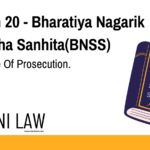Code
(1) A High Court may pass any sentence authorised by law.
(2) A Sessions Judge or Additional Sessions Judge may pass any sentence authorised by law; but any sentence of death passed by any such Judge shall be subject to confirmation by the High Court.
Explanation
This section of the BNSS code defines the sentencing powers of different courts:
- High Courts: Have the authority to impose any legal sentence.
- Sessions Judges and Additional Sessions Judges: Also have the authority to impose any legal sentence. However, any death sentence imposed by them requires confirmation from the High Court before it can be carried out.
Illustration
Consider a case where a Sessions Judge finds a defendant guilty of murder and imposes a death sentence. In this case, the High Court will need to review the case and confirm the sentence before it can be executed.
Common Questions and Answers
Q: Why does the death penalty require confirmation from the High Court?
A: This is a safeguard to ensure that the death penalty is not imposed lightly. It allows for a higher level of judicial scrutiny before the ultimate sanction is carried out.
Q: Can a Sessions Judge impose a life imprisonment sentence without confirmation?
A: Yes, Sessions Judges can impose life imprisonment sentences without confirmation from the High Court.
Q: What happens if the High Court rejects the confirmation of a death sentence?
A: If the High Court rejects the confirmation, the death sentence is not carried out, and the convicted person’s sentence may be reduced to life imprisonment or another lesser penalty.







